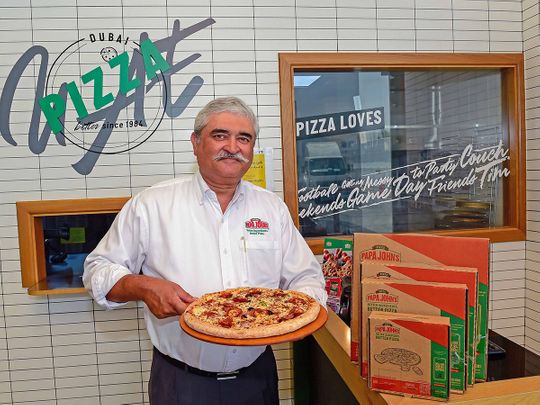
Dubai: Restaurant operators in Dubai are sending strong signals to their landlords to renegotiate on rents. If not, they will seek new locations… within the same neighbourhood and at a lower rent.
This is one of the new pressure tactics that restaurant operators – and some retailers – are planning to employ to get landlords to at least listen to them. Industry sources have complained in recent weeks that many landlords have voluntarily cut off all contacts and negotiations related to rent waivers or deferments.
By telling these landlords that they will not renew leases and instead move into a new location nearby, these businesses hope to give them a wake up call.
And there are some enterprising landlords – those with new premises - who want to make full use of the current situation. They are now approaching these businesses and actively telling them to re-locate. On better terms.
“The option to relocate mostly comes up when the lease is due for renewal,” said one F&B operator. “Other landlords in the neighborhood approach us with attractive offers. We are reviewing - but it is not just the lower rent that is a deciding factor here.”
Relocation spree
This summer, property sources say there will be a flood of relocations happening in the retail space. A majority of landlords have not agreed to rent reductions beyond 15-20 per cent… and in these circumstances, tenants says that’s way too little to compensate for the drop in their business after COVID-19.
Restaurant industry sources say their cashflow is still stuck at 50-60 per cent below pre-COVID-19 volumes.
But should businesses relocate? Especially in the same neighbourhood?
Sure, if the brand has built up a sufficient following, then a relocation within the community can be done with minimum disruption.
But Tapan Vaidya, CEO of PJP Investments Group, which owns and operates Papa John's Pizza in the UAE, says some homework will still need to be gone through. And he has his doubts whether a relocation purely to save on rents will work.
“There is no one-size fits all solution – transferring to another location within the same trade area is almost never likely to be successful unless the current landlord is charging you extremely unreasonable rents,” he says. “In that case, the differential in lowered rent could make up for the book value of the investment sunk into the previous location.
“The Ideal way forward though is to sit down with the current landlord and make him see sense.”
When I look around, it is like a battleground for most restaurant companies - their very survival is in question
Role models
There are many who believe that government-owned landlords can show the way for private players. In this regard, they point to the relief packages offered by wasl Properties to its retail tenants, whereby they were given direct rent-free months on their remaining leases. And even extended to lease renewals.
Rent waiver is the solution, sources say. Reduction in rents will only help up to a point. And only if businesses are able to reach pre-COVID-19 levels immediately after resumption of activity.
So, telling landlords they will quit if they don’t offer more should be the last resort.
Here’s why – “Tenants who leave first are the ones who lose out the most,” says the operator of an international F&B franchise. “Those who are a bit more patient tend to reap the benefits.
“For example, we are in a neighborhood centre where our lease was coming up for renewal. We had been negotiating with the landlord and they were not receptive. However, they became very accommodating of our concerns as soon as a few other tenants left.
“Patience is important is securing a realistic deal. This crisis is one where landlords and tenants are both affected.”
So, moving from lose-lose to the possibility of a win-win is the best option for landlords and tenants. If not, there is always that newly opened location in the neighbourhood…
“The organized lot, who have acted honorably and sensibly. They have waiving rents for the entire lockdown period and charging a reasonable rental post the reopening on a revenue share basis.
“The second kind are the individual landlords represented by real estate companies. In our case, where we had leases being renewed during this period, these landlords have either reduced rent from 15-30 per cent by direct reduction. Or by adding a month- or two gratis to the lease term.
“The last kind includes individual landlords who are unwilling to listen to reason, would not budge from collecting full rentals during lockdown - even when half the neighboring shops have vacated and we threaten to do the same. Their approach to their business is questionable, but quite possibly they have paid off banks any borrowings. So it does not bother them whether property is empty or occupied.”








